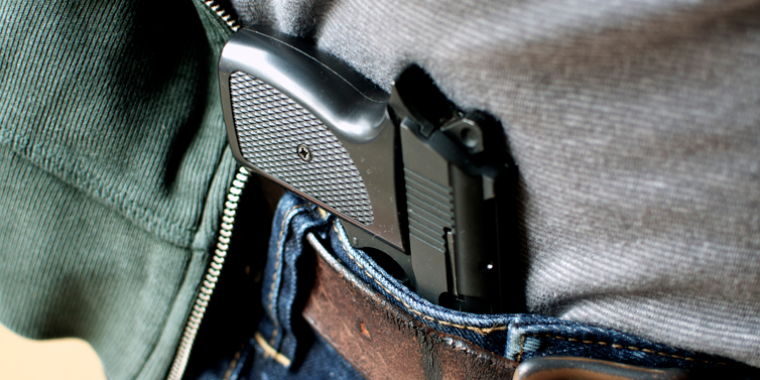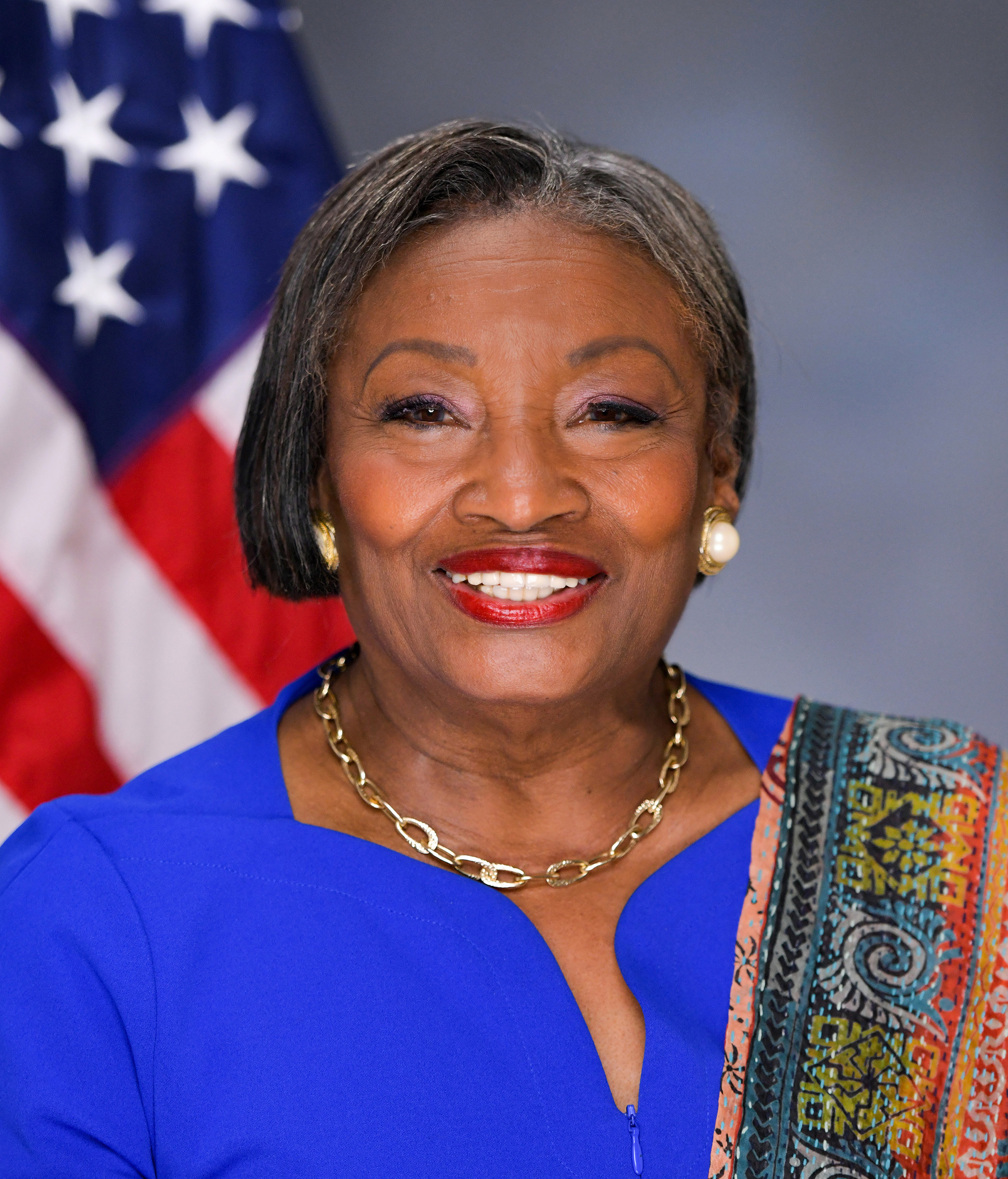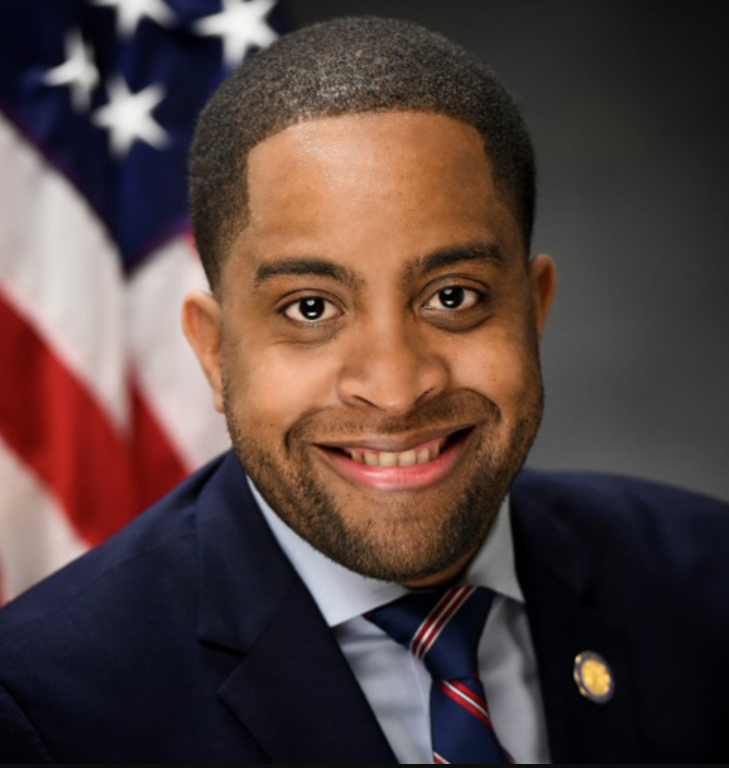Senate Acts on SCOTUS Ruling Invalidating New York’s Concealed Carry Law
July 1, 2022

The New York State Senate passed legislation in response to the United States Supreme Court’s NYSRPA v. Bruen decision that invalidated New York’s 100-year-old gun control law restricting the concealed carrying of a firearms. Although the Supreme Court’s conservative majority ruled that the law infringes on an individual’s Second Amendment right to carry a weapon in public for the purpose of self-defense, the decision allows states to issue licensing requirements for carrying a firearm. This legislative package enhances licensing requirements for concealed carry permit applicants, adds new provisions for sensitive areas where the permit holder is prohibited from carrying a concealed firearm, enhances safe storage requirements to apply if a minor under the age of 18 lives in the home, and makes technical changes to the Body Armor Law. Additionally, this legislative package establishes New York as a “point of contact” state. Read the Senate Majority Release.
Senate Majority Leader Andrea Stewart-Cousins said, “In response to the Supreme Court’s decision, implying that guns are more important than lives in this country, we are passing legislation to ensure that New York State has safe and responsible gun laws. States are the last line of defense, which is why we are stepping up to protect New York from being easily flooded with concealed weapons and keeping firearms out of the wrong hands. These measures, in addition to the previous anti-gun violence legislation we passed, are vital in a time when there are more guns than people in America. New York will continue to prioritize people’s safety and lives, and I thank my conference, Speaker Heastie, and Governor Hochul for their partnership.”
- Adds a definition of “good moral character”:
- Good moral character as defined in this legislation means having the essential character, temperament, and judgment necessary to be entrusted with a weapon and to use it in a manner that does not endanger oneself or others.
- Defining “good moral character” more specifically in this way will make sure that licensing officers will create processes that assess an individual’s trustworthiness to handle a firearm.
- This proposal would require concealed-carry applicants to meet in person with a licensing officer for an in-person interview. Under this legislation, it would be required for an applicant to submit the following information:
- Names and contact information for the applicant’s current spouse or domestic partner, and current cohabitants, and an indication if any minors live with the applicant;
- Names and contact information of at least four character references;
- Certification that the applicant has completed all of the required training;
- A list of social media accounts from the past three years to confirm that applicant’s character and conduct; and
- Anything else the licensing officer requests that is reasonably required to complete their review and assess good moral character.
- Furthermore, in addition to the disqualifying felonies in current law, concealed-carry applicants must also not have been convicted of assault in the third degree, misdemeanor driving while impaired, or menacing within the previous five years
- Criminal possession of a weapon in a prohibited area will be a Class E felony punishable by up to four years in prison. In addition, there will be a separate Class E felony for criminal possession of a weapon in private property where the owner has not explicitly authorized weapons on the premises.
- Carrying a concealed weapon will be prohibited in the following areas:
- Federal, state, or local government buildings, including courts;
- Places providing health or medical care, such as hospitals, nursing homes, adult care facilities, domestic violence shelters, medical campuses, behavioral facilities, mental health and chemical dependency facilities, and clinics;
- Places of worship or religious observation;
- Places where children gather, including but not limited to, schools, libraries, daycare centers, playgrounds, parks, and zoos;
- Any OCFS regulated locations that provide services to children youth or young adults
- Any OPWDD, OASAS, OMH, and OTDA funded or regulated locations, including homeless shelters;
- Places used for public transportation or transit including, airports, train stations, subway and rail stations, and bus terminals;
- Establishments where alcohol or cannabis is consumed;
- Locations when being used as a polling place;
- Educational institutions including, colleges, universities, and private schools;
- Theaters, stadiums, arenas, racetracks, museums, amusement parks, performance venues, concerts, exhibits, conference centers, banquet halls, casinos, and venues for athletic games or contests;
- Any public sidewalk restricted from access for a permitted special event that has signage
- Any gathering of individuals who are collectively expressing First Amendment rights of protest or assembly.
- Times Square
- The prohibition of carrying weapons in sensitive areas does not apply to police officers, peace officers, armed security guards, active duty military personnel, or any person who is lawfully engaged in hunting.
- The bill also ensures residents of childcare facilities (such as foster parents) and other similar locations can keep a firearm in the home as long as it is stored safely and in accordance with all applicable regulations.
- Expands existing safe storage laws, which were originally enacted in 2019. Current law requires guns to be safely stored in the home if a person under the age of 16 lives in the home or if a person legally disqualified from possession of a gun lives in the home. This bill would raise the age limit, so that safe storage laws would apply if a minor under the age of 18 lives in the home.
- Implements a vehicle safe storage requirement so that a person cannot leave a gun in a car outside of his or her immediate possession or control, unless the gun is in a lockbox.
- The legislation amends the definition of body vest to “armor,” which means any product that is a personal protective body covering intended to protect against gunfire, regardless of whether the product is to be worn alone or is sold as a complement to another product or garment. The terms ‘vest’ and ‘armor’ have been used interchangeably in casual parlance, but they do not mean the same thing. This legislation amends this definition so as to avoid misinterpretation.
- The legislation also prohibits the unlawful sale and purchase of body armor if the individual or entity does not engage in an ‘eligible profession’ which includes police officers, peace officers, those employed in military services and other similar professions.
- Establish New York as a “point of contact” state by requiring gun dealers to contact the State Police to conduct the background check that must be done before an individual can purchase a gun. In 2017 alone, NCIS stopped 181,000 prohibited people from attempting to buy guns, so implementing this bill would decrease the number of those who are unfit from purchasing a gun in New York.
- Makes technical changes to the existing law that establishes an ammunition database to verify ammunition sales in New York, enacted as part of the SAFE Act in 2013, and strikes the memorandum of understanding between the previous Executive and Republican Majority Leader stalling its implementation.
- Any seller of ammunition or dealer of firearms shall keep either an electronic record, or dataset, or an organized collection of structured information, or data, typically store electronically in a computer system approved as to form by the Superintendent of the State Police.
- In the record shall be entered at the time of every transaction involving ammunition the date, name, age, occupation and residence of any person from whom ammunition is receiving or to whom ammunition is delivered, and the amount, caliber, manufacturer’s name and serial number, or if non, any other distinguishing number of identification mark on such ammunition.
“Even as the gun industry attacks our sensible gun laws, our communities, and our children, we know we can count on New York State's leadership to protect us time and time again," said Rebecca Fischer, executive director of New Yorkers Against Gun Violence. "Last week, the gun-lobby backed U.S. Supreme Court overhauled New York's concealed carry licensing law, a law that has helped keep New Yorkers safe for over a century. Today, our state lawmakers have taken swift action by enacting new laws that will strengthen our public carry permitting process and enable New Yorkers to live safely in sensitive places across New York. We applaud Senate Majority Leader Andrea Stewart-Cousins, State Senators Zellnor Myrie and Brian Kavanagh, and the entire Senate Majority conference for being model leaders for our nation as we continue to address the gun violence crisis and save lives.”
related legislation
Share this Article or Press Release
Senators Involved
35th Senate District
20th Senate District
27th Senate District


